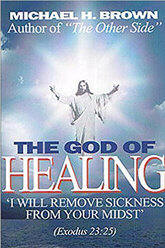![]()
There’s the fact that many have been home — and near the fridge. There’s the fact that many snacked (and still may be) while watching all that Netflix. There’s the munching out of simple tension or tedium.
But also, here’s a word for you: cortisol.
Is there more than normal girth at your mid-section? Are you baffled as to why you are gaining as much as you have (and perhaps not overeating)? Do you feel frustrated and as if your body is stubbornly “holding” something? Is the weight staying despite exercise and hydration?
A mystery no longer:
If you have put on a few, or more than a few, pounds during the whole global pathogenic conundrum (which we still can’t figure out), it may well be from simple stress and unknowing, for stress releases the hormone cortisol and cortisol does four things most of us would rather it not.
It can slow down metabolism to save calories.
It interrupts sleep (and when we are tired, we overcompensate by eating).
It creates a craving for sugar — which, in a vicious cycle, triggers yet more cortisol.
And it fashions calories that usually it would earmark to burn into adipose tissue, a.k.a. fat. While telling you to eat more, and often slowing your metabolism at the same time, it signals the body to grow your belly.
Now, every human body is so unique that reasons vary. What causes weight gain in one person may not in another — just like viruses affect folks differently. Only God knows the intricacies.
But in general, when we are out of balance emotionally, spiritually, and psychologically, triggers and alarms in our bodies that are set off and one is in the adrenal gland, where cortisol, in conjunction with two other glands, is manufactured.
If you are gaining more weight than you would expect from the simple quantity of food intake (even if it is somewhat increased), suffering interrupted sleep (on a consistent basis), feeling fatigued in an unusual way, exhibiting higher blood pressure, encountering brain fog, or suffering mood swings, it could well be tied to this sneaky hormone, which, like a certain virus, is on a rampage.
Cortisol stimulates fat and carbohydrate metabolism for fast energy in response to stress (“fight or flight”), and stimulates insulin release and maintenance of blood sugar levels. When there is no flight or fight, the carbohydrates have to go somewhere. The end result of these actions can be an increase in appetite, causing a craving for sweet, high-fat, and salty items, especially junk food.
Thus, to lose weight, at times like these, pray at reducing your stress.
And limit caffeine and alcohol (which also stimulate production of cortisol).
Play. Have some fun despite all the hullabaloo. Shake off fear. God is near! Go outdoors. Walk or run or garden or swim.
Keep moving.
 As for foods that reduce cortisol, it’s said that bananas, avocados, broccoli, garlic, green or black tea, basil, dried apricots, asparagus, yogurt, pears, salmon, almonds, red peppers, carrots, onions, papaya, Brussel sprouts, dark greens, blueberries, and (very good news here) dark chocolate can help the issue (though, sorry: not too much of that chocolate).
As for foods that reduce cortisol, it’s said that bananas, avocados, broccoli, garlic, green or black tea, basil, dried apricots, asparagus, yogurt, pears, salmon, almonds, red peppers, carrots, onions, papaya, Brussel sprouts, dark greens, blueberries, and (very good news here) dark chocolate can help the issue (though, sorry: not too much of that chocolate).
And so there we have it. Declare this the day you start losing the weight that disturbs you.
For the best advice, go to the Great Dietician (a.k.a. the Holy Spirit).
Ask Him what your body — being unique — needs or doesn’t need, and He’ll guide you out of “quarantine belly.”
[resources: The God of Healing]


